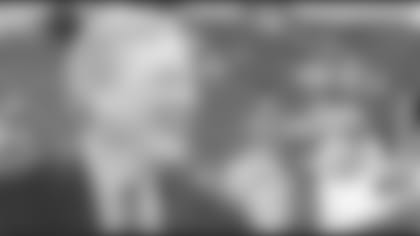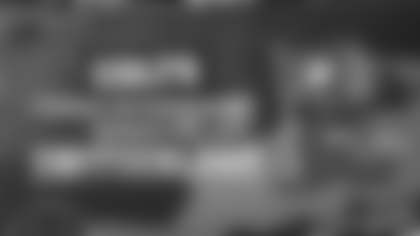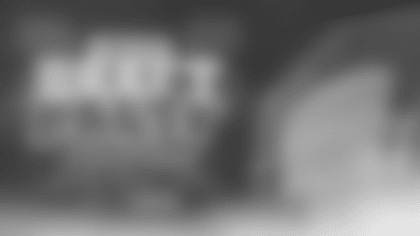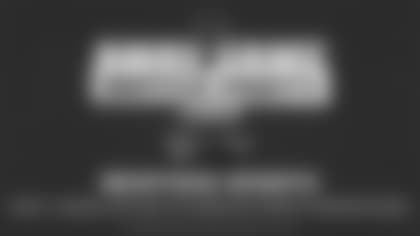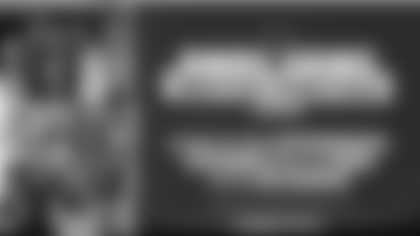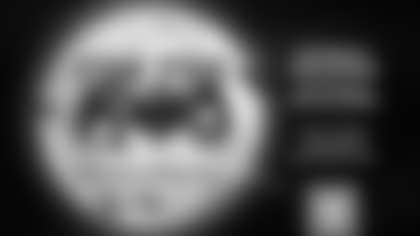To Bill Polian and the Colts, 2010 NFL Draft Much More Than
No. 31 Overall Selection
INDIANAPOLIS – Without question, Bill Polian said Thursday matters.
Polian, entering his 13th season as the Colts' president, on Thursday night for the 13th time will oversee the Colts' NFL Draft, and there is a chance that for the 11th time he will make for the Colts a selection in the first round.
There is, he said, also a chance the Colts will not select Thursday.
Polian said this week there is a chance – a very real chance – the Colts will trade the No. 31 overall selection in the 2010 NFL Draft to move down. Because only one round will be held Thursday, that would mean a selection-less first day for Indianapolis.
And Polian said that would be OK.
Polian, long considered one of the NFL's top talent evaluators and drafters, said while much of the pre-draft discussion among fans and media – the draft's "parallel universe," as he calls it – annually focuses on Round 1, there is in fact far more to the draft.
What happens after Thursday night? Well, Polian said, that's just as imant.
And maybe even more so.
"Every pick counts, whether it's No. 1 or the last supplemental pick in the seventh round," Polian said. "They all count and we want them to hopefully make a contribution to our squad."
The Colts will enter the 2010 NFL Draft – the first in the draft's 75-year history to begin in prime-time – with eight selections. That total includes their original selections in Rounds 1-5 and Round 7, as well as two compensatory selections in the seventh round.
The Colts traded their sixth round selection to the Eagles for the 2009 seventh-round selection they used on punter Pat McAfee.
And Polian said while much of the focus of the media and other analysts will be on Thursday's first round, Friday's second and third rounds are important, as are Rounds 4-7 Saturday.
Just as critical, Polian said, is the process of signing free agents after the draft.
"It's all about the entire process – not just the first round," Polian said. "I recognize that in the parallel universe, all the focus is on the first round, but that's not where our focus is. Our focus is actually greater on the lower rounds than it is on the first.
"The first-round process is not hard to sort out. It's the lower rounds that are really important because they are, by definition, harder to sort out."
Polian cited starters and contributors who have been selected in the fourth round or later, or who have been signed as collegiate free agents: center Jeff Saturday (free agent) left tackle Charlie Johnson (sixth round), wide receiver Pierre Garcon (sixth round), wide receiver Austin Collie (fourth round), tight end Jacob Tamme (fourth round), defensive tackle Eric Foster (free agent), safety Antoine Bethea (sixth round), safety Melvin Bullitt (free agent), cornerback Jacob Lacey (free agent), defensive end Keyunta Dawson (seventh round), outside linebacker Clint Session (fourth round) and defensive end Robert Mathis (fifth round).
Middle linebacker Gary Brackett, a starter since 2005, also was signed as a collegiate free agent.
Obtaining such players, he said, is a process that involves far more than the weekend, or even a pre-draft process that includes All-Star games, the NFL Scouting Combine in February, Pro Days and private individual workouts.
"It's sort of business as usual," Polian said of draft weekend. "This is what we do. The preparation for this started last September 2 and for the scouts, last August 5. This is the culmination of a year's worth of work that we've worked very hard to get right.
"We do have a system that we follow, and that system has served us well over time."
That system, Polian often has said, is one in which perfection is not possible, and a team that is successful a few percentage points more often than not often is a perennial playoff team.
"It's not a science," Polian said. "It's an art. It's far more art than science. Judging human beings is not easy to do. You're going to make a lot of mistakes. Sometimes, it's bad luck because a guy gets injured and other times, you just, flat make a mistake in your evaluation. That happens. But if you make a mistake, I think it ought to be for the right reasons.
"That's what we try to do, is strive to make the picks for the right reasons."
And while the draft is more art than science, Polian said the final moments of the process take place in a professional, calm atmosphere, one without cheering, arguments or even much discussion. By the time the draft arrives, Polian said much of the work is done.
"You're in a position where you're doing what you do on an ongoing basis, so it's business as usual," Polian said. "There's some anticipation as you get closer to your pick because everyone's excited. You'd like the person that you like the best to be there, and you recognize that it's probably not possible.
"The pulse rate goes up then, but otherwise it's business as usual. There's very little conversation and never any cheering. Every once in a while, there's some chagrin if a player goes of the board, but we've always said, 'That's the way 'it is.'
"You're not going to get every one you like, so be prepared to make another pick. We hope that we've prepared in advance to make another pick, What we're going to try to do is cover every eventuality so we are prepared so there's little or no emotion and never any uncertainty or heated discussion or things of that nature."


